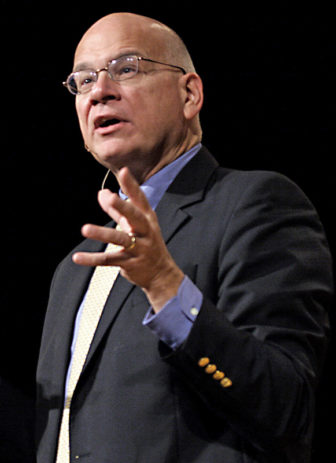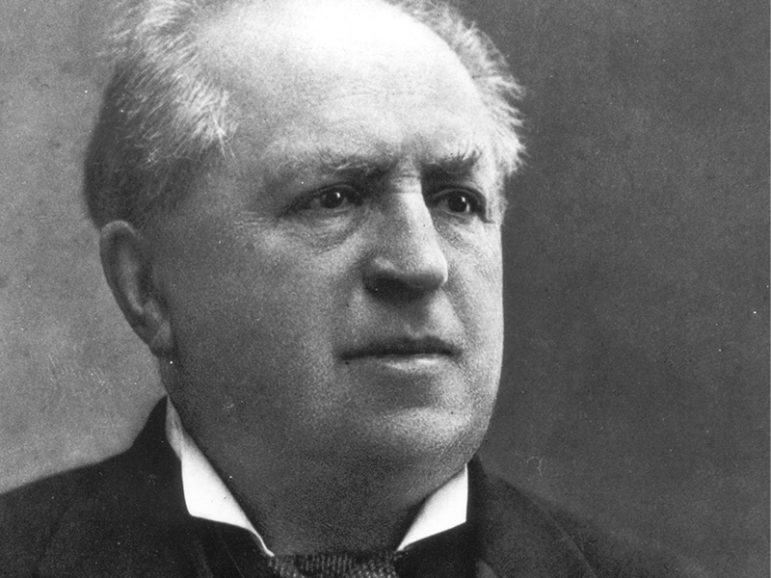Abraham Kuyper has been in the news lately. It has been almost a century since his name has been mentioned as frequently in the media as in the past few weeks. In the 19th century Netherlands Kuyper was often in the headlines. Over five decades he founded two newspapers, a university, a political party and a denomination, making him one of the best-known figures in Dutch public life in the 19th century.
An amazing multitasker, Kuyper stayed active in all of these initiatives. He regularly wrote articles for his newspapers; he taught theology at Amsterdam’s Free University; he led his party as a member of the Dutch parliament; and he played an active role in the life of the Dutch Reformed churches. And not long after he returned home after an 1898 visit to the United States, he served a term as Prime Minister of the Netherlands.
His primary purpose for his American sojourn was to deliver the 1898 Stone Lectures at Princeton Seminary — although he did visit other cities, including Washington, where he was hosted at a White House dinner by President McKinley.
For much of the twentieth century, after his death in 1920, Kuyper was revered primarily in Dutch Calvinist communities in the Netherlands and North America. But his influence began to spread internationally in the latter part of this past century. Recognizing this, Princeton Theological Seminary established an annual conference focusing on his thought, with the awarding of a Kuyper Prize for Excellence in Reformed Theology and Public Life on each occasion.

Tim Keller speaking on Sept. 30, 2006. Photo courtesy of Creative Commons/Frank Licorice
This year the chosen awardee was Timothy Keller, influential pastor of Redeemer Church in New York City and a key advocate for Kuyper’s theology of cultural engagement. That choice quickly became controversial on the seminary’s campus, because Keller represents a Presbyterian denomination that does not support the ordination of women and also holds to traditional Christian views on same-sex relations. In response to the outcry, mainly from the student body, the seminary’s leadership recently announced that it has reversed its decision to award the prize to Keller, although Keller has (graciously!) agreed to deliver the lecture that was meant to accompany the award ceremony.
Princeton’s reversal of its decision to honor Keller has in turn generated much critical commentary beyond the campus, including from several of us who are past recipients of the Kuyper Prize. Not only has Pastor Keller been widely praised in all of this — including by many evangelical women who see him as supportive of their leadership roles in the academy, journalism, the arts and business — but the discussions have also stimulated an expanded interest in Kuyper’s life and thought.
Kuyper was a passionate advocate for a kind of evangelical Calvinism that articulates a worldview that stands in stark contrast to secularist portrayals of the human person’s place in the larger scheme of things. This led him to explore many of the themes that have come to be associated with “post-modern” thought: the increasing fragmentation of our experiences of reality, religious diversity, and democratic pluralism. Kuyper was wrestling in creative ways with issues also addressed in recent Catholic thought. For example, the great Jesuit thinker, John Courtney Murray, an influential force at the Second Vatican Council in the 1960s, argued for a Catholic perspective on pluralistic culture that recognized that “error has rights,” thus preserving the Christian conviction that there are abiding moral and religious truths while also offering a rationale for participation in a political system that cherishes toleration and tentativeness in dealing with issues of public policy.
In developing his own Calvinist version of that kind of approach, Kuyper eloquently insisted on an intimate link between a belief in God’s purposes for human life and democratic ideals. He also articulated a “sphere sovereignty” doctrine that has strong similarities to recent discussions by social scientists of “mediating structures”: neighborhoods, service organizations, teams, and religious bodies that can function as safeguards against both individualism and statism. Kuyper’s views on these matters are being studied by scholars in various international settings (including mainland China) where questions about “nation building” and “civil society” are now important topics.
For those of us who have been working for an increasing influence of Kuyper’s in North American evangelicalism, where a mean-spiritedness is often on display in dealing with issues in the public square, we can only regret that his name has now been linked with a decision that has generated some new manifestations of intolerance — on both sides of the Princeton controversy — about what it takes to deserve a prize bearing Kuyper’s name.





